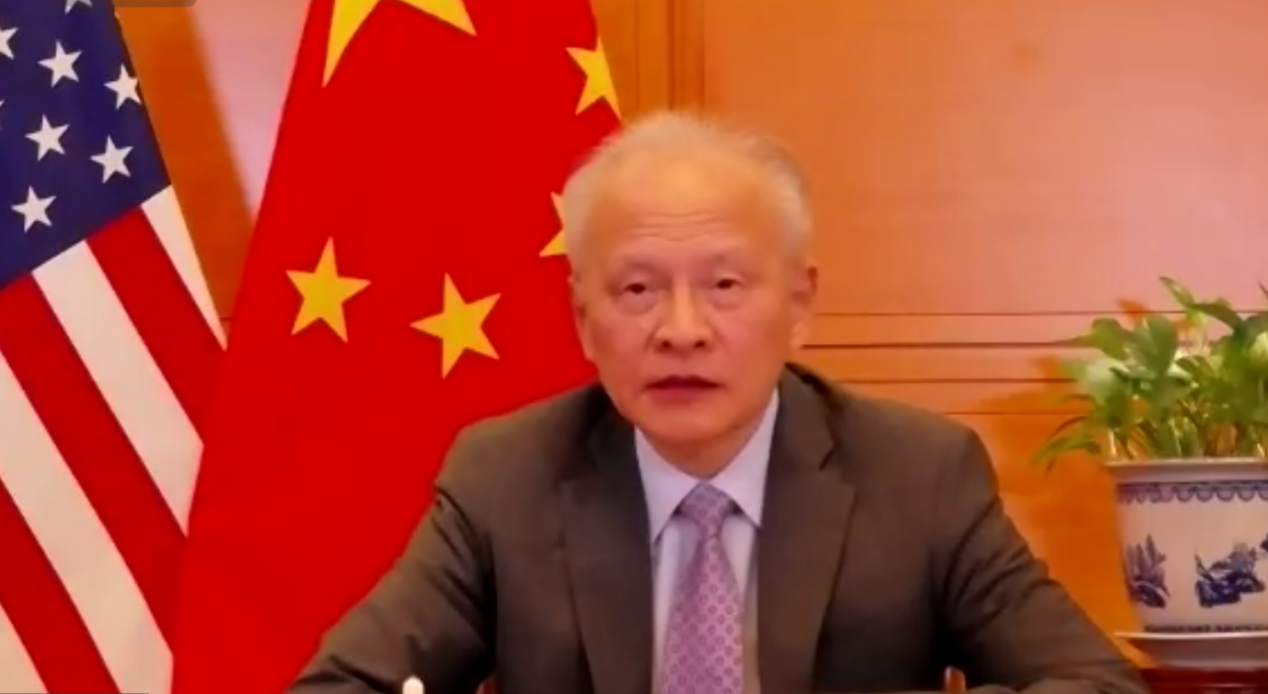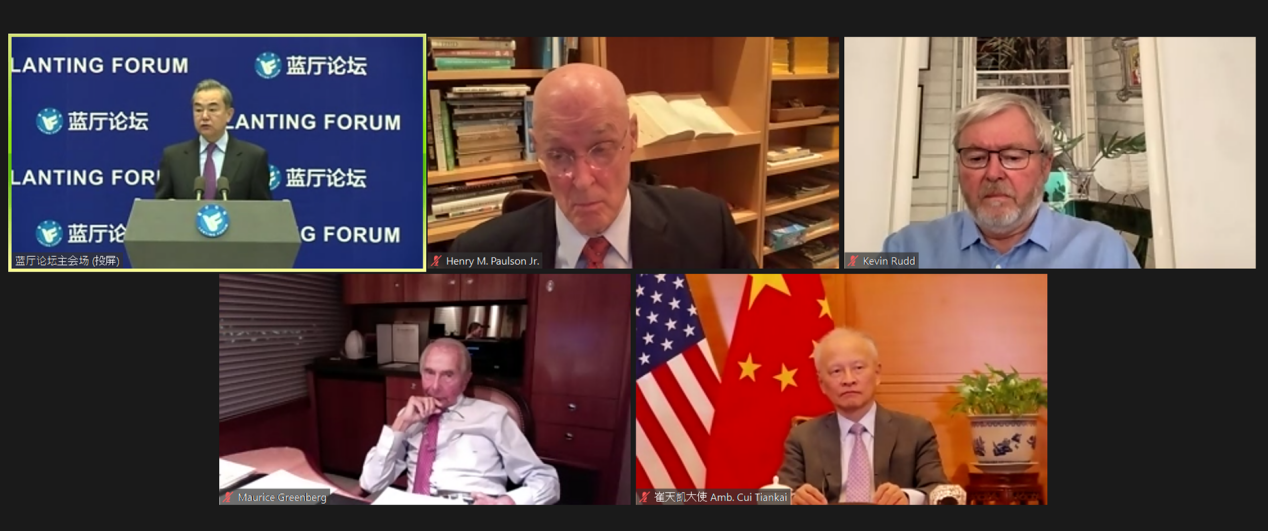
Photos provided to People's Daily app
Washington (People’s Daily) – Chinese Ambassador to the United States Cui Tiankai on Sunday spoke at the Opening of the Lanting Forum on Promoting Dialogue and Cooperation and Managing Differences: Bringing China-US Relations Back to the Right Track, in which he emphasized it’s high time to recalibrate the direction of the China-US relationship.
Here is the full transcript of the speech:
State Councilor Wang Yi,
Ladies and Gentlemen,
First, I would like to extend New Year’s greetings to you all. Standing at the beginning of the Year of the Ox, it is most relevant for us to explore the future of China-US relations together. At this critical juncture, it is high time for us to recalibrate the direction of the China-US relationship, so that it will be better prepared for a new start.
President Xi Jinping and President Joe Biden had a phone call on the eve of the Chinese New Year, which has pointed the way forward for China-US relations. Just now, State Councilor Wang Yi gave enlightening elaborations on how to understand China and how to take the relations back to the right track, and other Chinese and American speakers also shared their valuable views. Here I wish to stress the following three points.
First, China and the United States need to have an accurate understanding of each other’s strategic intentions. China’s development is to meet the people’s aspiration for a better life. From our programs on poverty alleviation and environment protection to our endeavor to implement the new development philosophy and foster a new development paradigm, a better life for the people is at the heart and center of everything we do, and it will be guiding us through the new development stage in pursuit of rejuvenation of the Chinese nation. On the international front, China is committed to following a path of peaceful development and building a community with a shared future for mankind. We do this for the common interests of mankind. China has had no intention whatsoever to challenge or displace any country, let alone make it its strategic goal.

When the problem is with the mindset, the cure cannot be sought elsewhere. In terms of China-US relations, some people in the U.S. may need to get rid of their paranoia about China and walk out of darkness to greet the sun. It is time for them to stop creating an imaginary enemy out of China and making any self-fulfilling prophecy. It is time for them to abandon the antiquated mindset of zero-sum games and obsession with the Thucydides’ trap. And it is time for them to ditch the habit of playing dumb and stop putting domestic political strife and even their selfish interests above the lofty cause of peaceful coexistence between China and the US and of common development of the whole world. In short, there must be a correct strategic perception; otherwise, one mistake would only be replaced by another.
Second, China and the United States need to have a real knowledge and respect of each other’s history, culture and development path. A key to understanding an ancient civilization such as China is its history and culture, including its deep-rooted belief in “harmony” and its tradition of establishing both oneself and others. This year marks the centenary of the Communist Party of China. Knowing about these 100 years is essential to knowing about China’s past, present and future. Knowing about these 100 years, you will know why the path chosen by the Party, one reflecting China’s culture and suiting its conditions, would meet the trend of the times and prove to be effective and widely supported, and you will know why it is also the choice of history and the people.
America talks a great deal about its founding values and about “all men are created equal.” But some people in the US are inclined to use their own definition of “democracy” and other values to draw the line, and label other countries according to their own preference and standards. Worse still, when faced with countries differing from them, they would naturally have a bias, and would close ranks with the West to take on the rest with sanctions and confrontation. This is undemocratic in the most typical sense. If such a tendency is allowed to go to extremes, it would develop into racism and manifestations of “the law of the jungle.” It is hoped that America will have a correct mindset, live up to the principle that all countries “are created equal,” and learn to peacefully coexist with those who have a different history, culture, development path and system.
Third, China and the United States need to have candid communication and clearly define their policy boundaries, so as to effectively manage differences and focus on cooperation. Any problem can be put on the table. The nature of the problems must be unequivocally identified, policy boundaries distinctly marked, and the red line clearly set. On matters concerning China’s sovereignty and territorial integrity, such as Taiwan, Hong Kong, Xinjiang and Xizang, China will never back down, and the red line must be followed. On the basis of respecting each other’s core interests, it is necessary to constructively and properly manage the issues where differences cannot be resolved for the moment, so as to avoid confrontation. The two sides need to have in-depth and candid dialogue in various fields, and strengthen coordination and cooperation in addressing global challenges as well as regional and international hotspots. Today’s forum is a good example of such communication, and think tanks and the media should all play a positive role.
This year marks the 50th anniversary of Dr Henry Kissinger’s first visit to China. History has proved that a sound and stable China-US relationship serves the common interests of the two peoples and the entire international community. Our path onwards will depend on our choice today.
I wish the forum a complete success. Thank you.


